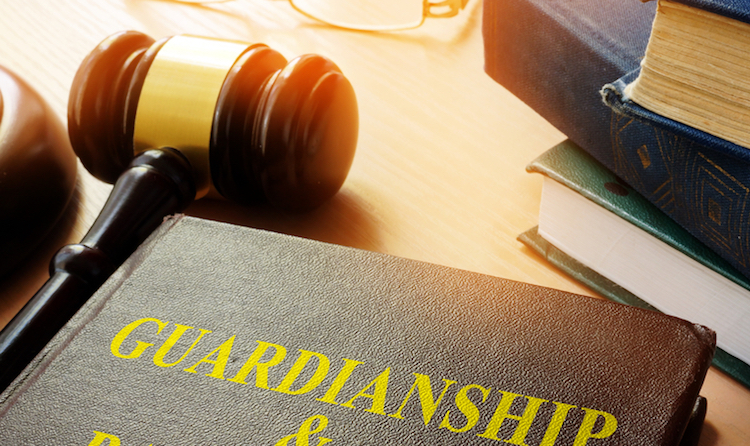Guardians ad litem have absolute immunity in suit alleging wrongful conduct, appeals court says

Lawyers representing a child as guardians ad litem are absolutely immune for acts happening within their court-appointed duties, even for acts alleged to be “wrongful and illegal,” a federal appeals court has ruled. (Image from Shutterstock)
Lawyers representing a child as guardians ad litem are absolutely immune for acts happening within their court-appointed duties, even for acts alleged to be “wrongful and illegal,” a federal appeals court has ruled.
The 8th U.S. Circuit Court of Appeals at St. Louis affirmed dismissal of the lawsuit filed by Devon Arseneau in an Aug. 7 opinion, Law.com reports.
The defendants in the appeal were two lawyers appointed to represent the best interests of Arseneau’s child. Arseneau sued after a court awarded sole legal custody of the child to Arseneau’s ex-husband and awarded joint physical custody to both of them.
Both lawyers had testified in the case. Arseneau alleged a violation of her constitutional rights under Section 1983 of the Civil Rights Act.
When Section 1983 was enacted, guardians ad litem performed judicial functions that were granted immunity under common law, the 8th Circuit said. As a result, they are entitled to absolute immunity when they act within their judicial duties, the appeals court concluded.
Arseneau had alleged that both lawyers misrepresented their qualifications to the court. One of the lawyers also misrepresented a child protection order, she alleged, and tried to retry issues addressed in the order. The other lawyer allegedly blocked reporting of child abuse, refused to allow testimony by the child’s therapist, and told Arseneau and her lawyer that she would lose custody if there was no settlement.
The majority of the alleged conduct “falls squarely” within the scope of the lawyers’ duties, the appeals court said in an opinion by Judge Raymond W. Gruender. As guardians ad litem, the lawyers were required to conduct investigations, present testimony to the court, and make a custody determination based on the child’s best interests.
One allegation—concerning the lawyer’s alleged statement that Arseneau would lose custody absent a settlement—arguably falls outside the scope of his role as a guardian ad litem, the appeals court said. But Arseneau provided no details outside a conclusory statement about the lawyer allegedly threatening her with loss of custody.
This allegation alone was not enough to keep the suit in court, Gruender concluded.



